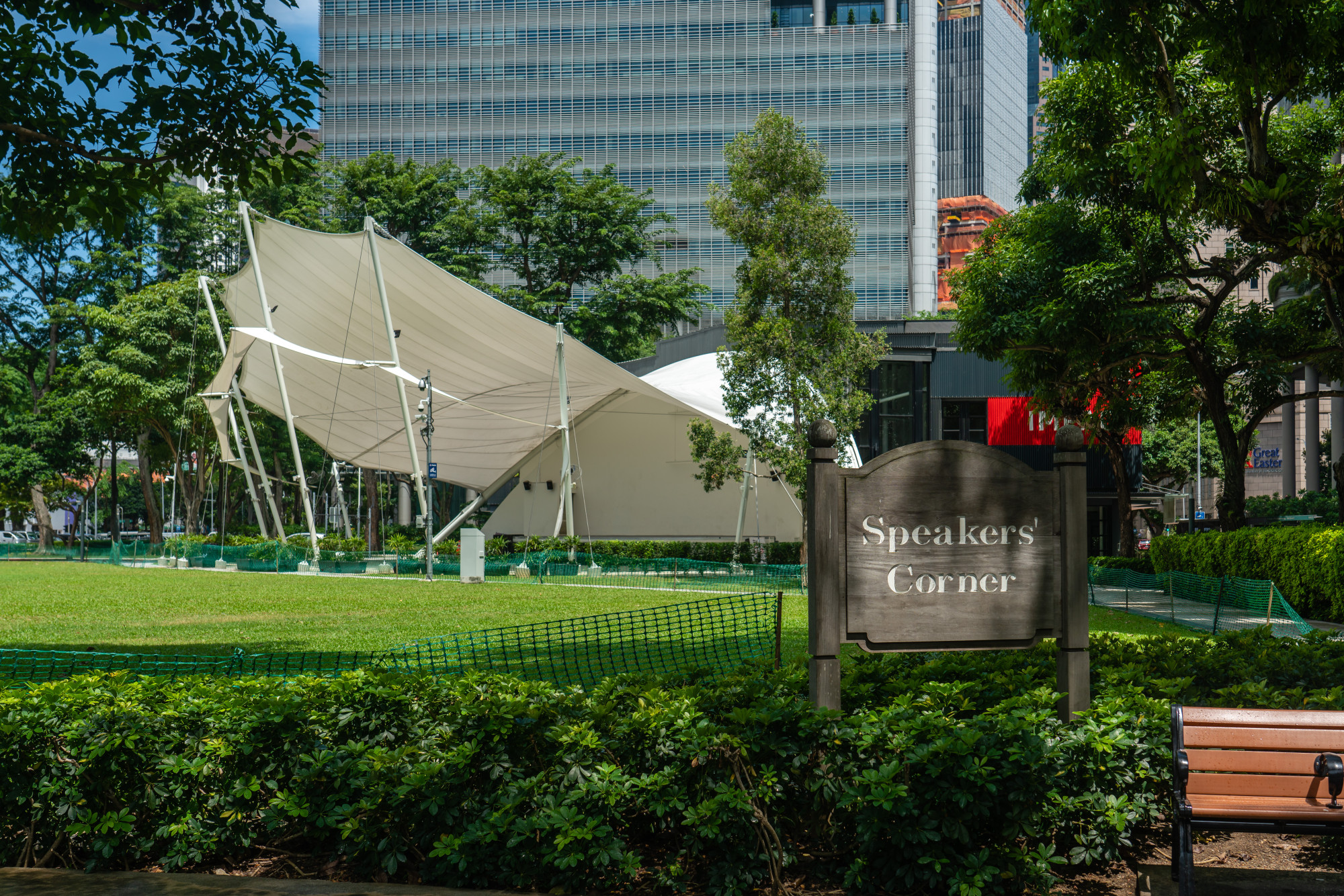
Singapore to refuse events linked to Israel-Gaza war, citing ‘real risk’ of public disorder
- The measure extends to the republic’s sole free-speech zone in Hong Lim Park, where protests generally do not require police approval
- At least two events in Singapore had been planned in support of the Palestinian cause, with details circulating on social media this week
In a joint statement, the National Parks Board and the Singapore Police Force cited “public safety and security concerns” for the decision.
Israel-Gaza war divides Southeast Asia as trade, religion determine responses
“Given the sensitivity of the topic and the volatility of the situation overseas, there is a real risk that such events could give rise to public disorder. As such, applications to hold such events will be turned down,” it added.
At least two events in Singapore had been planned in support of the Palestinian cause, with details of the gathering circulated on social media this week.
One was to have been held on Sunday at Hong Lim Park, Singapore’s sole free speech zone where demonstrations that do not touch on topics such as race and religion, or involve foreigners and overseas issues, do not require police approval.

On Monday, one of the organisers of the event – called “Singaporeans for Peace in Palestine” – said in a social media post that they had applied for a permit and asked followers if they knew Palestinian people who were keen to speak and “any Jewish friends who are willing to speak out against the atrocities”.
“This is not about race or religion. This is about war crimes, genocide and humanity,” the person wrote.
A report by the national newspaper The Straits Times on Wednesday quoted one of the organisers, Siti Hajar Johari, as saying the event was meant to show support to the people of Gaza. “We do not support Hamas, but we need to stand up for the innocent civilians that are caught in the crossfire,” she said.
Another event, titled Singapore X Palestine Protest, was to have been held on Wednesday evening at the Marina Barrage close to the city state’s iconic Gardens by the Bay. There were no protesters in sight at the designated start of time of the event, according to a Post reporter at the scene.
Such a gathering would have required a police permit.
Why the Global South is choosing Palestine and China over Israel and US
Singapore’s Home Affairs and Law Minister K. Shanmugam last week urged citizens in the multiracial nation to not let the external events affect internal peace.
“We must, in Singapore, maintain our racial and religious peace. We have to stay vigilant. Terrorist groups will try and exploit such conflicts,” Shanmugam said, noting that Islamic militant groups had asked followers to join a wider global jihad in the aftermath of the October 7 attack.
Aside from close military and diplomatic ties with Israel, Singapore also maintains a relationship with the Palestinian National Authority that governs the West Bank, and supports a two-state solution.
“However, in exercising this right Israel must comply with international law, including the laws of war. It must do its utmost to protect the safety and security of civilians,” Singapore’s foreign ministry said.
Singapore’s main opposition party, the Workers’ Party, appeared to echo most of the government’s viewpoint on the conflict, in a statement issued on Wednesday.
Like Shanmugam, the Workers’ Party – which has eight MPs in the city state’s 103-seat legislature – warned of the possible radicalisation of individuals arising from the latest conflict.
“All Singaporeans should be aware and mindful of this possibility, and play an active part to prevent it from happening on our shores,” the party said.

